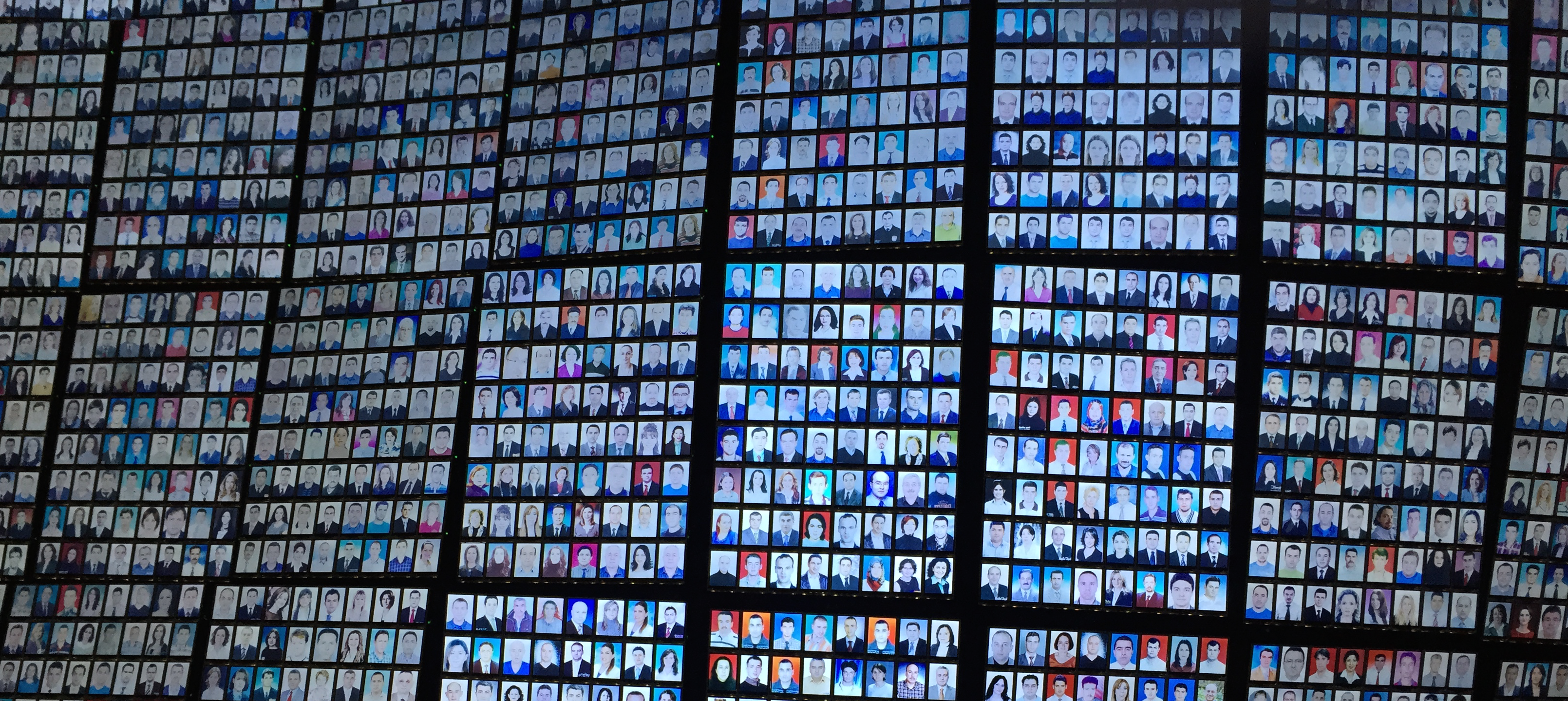Variables and the (Meta)semantics of Context-sensitivity
Date:
24-25 September 2019
Venue:
University of Wien, NIG, Universitätsstrasse 7, 1010 Wien, room 3A, 3rd floor. The venue is accessible by elevator. We are committed to hosting an accessible event.
Speakers:
Daniel Büring (Wien),
Michael Glanzberg (Northwestern),
Karen Lewis (Columbia),
Poppy Mankowitz (Lisbon),
Emanuel Viebahn (Berlin),
Thomas Ede Zimmermann (Frankfurt),
Sarah Zobel (Oslo)
Organiser:
Dirk Kindermann for
The Semantics and Metasemantics of Context-sensitive Language DFG Network: https://thesmcsl.wordpress.com
Philosophy of Language in Austria
Date:
15 March 2019
Venue:
University of Wien, NIG, Universitätsstrasse 7, 1010 Wien, room 3A, 3rd floor. The venue is accessible by elevator. We are committed to hosting an accessible event.
Speakers:
Katharina Felka (Graz),
Max Kölbel (Wien),
Ricardo Mena (UNAM)
Organiser:
Dirk Kindermann, Katharina Felka
4th Fragmentation Workshop: Dissonance and Implicit Bias
Date:
25-26 May 2017
Venue:
University of Graz, Heinrichstraße 26, 8010 Graz, room 09.51, fifth floor. The venue is accessible by elevator. We are committed to hosting an accessible event.
Speakers:
Joseph Bendana,
Cristina Borgoni,
Martina Fürst,
Annemarie Kalis,
Eric Schwitzgebel,
Josefa Toribio,
Anna Welpinghus
Program:
Organiser:
Cristina Borgoni, Dirk Kindermann, Andrea Onofri
Contact:
cristina.borgoni[at]uni-graz.at
3rd Fragmentation Workshop: Fragmentation and the Content of Belief
Date:
17-18 March 2017
Venue:
University of Graz, Heinrichstraße 26, 8010 Graz, room 09.51, fifth floor. The venue is accessible by elevator. We are committed to hosting an accessible event.
Speakers:
Imogen Dickie,
Andrea Onofri,
François Recanati,
Robert Stalnaker,
Seth Yalcin
Website:
Organiser:
Andrea Onofri, Cristina Borgoni, Dirk Kindermann
Contact:
andrea.onofri[at]uni-graz.at
Description:
Fragmentation, or compartmentalisation, is roughly the view that a single agent has various separate systems of belief, which need not make for a consistent and deductively closed overall system. This notion of fragmentation has been employed in the work of Cherniak, Lewis, and Stalnaker, and has more recently been developed by philosophers such as Egan, Greco, Rayo, Yalcin and others.
The goal of this workshop is to examine the potential role of fragmentation in accounting for the content of belief and other propositional attitudes. The nature of belief content remains one of the most fascinating and debated issues in contemporary philosophy of mind. The fragmentation hypothesis promises to provide a novel perspective on this challenging issue.
Non-exhaustive list of topics:
Can fragmentation solve notorious problems arising for possible-worlds accounts of mental content, such as the “problem of deduction”?
What role can fragmentation play in a theory of mathematical and logical knowledge?
Can fragmentation provide a novel solution to Frege’s Puzzle, i.e. the puzzle of explaining the possibility of confusion and ignorance about the identity of certain objects (e.g. Hesperus and Phosphorus)?
Can fragmentation help illuminate the nature of “modes of presentation”?
Should structured theories of mental content (e.g. Fregean and Russellian views) appeal to fragmentation?
What is the connection between mental and linguistic content from the perspective of fragmentation accounts?
The Unstructured Conference

Date:
22-23 April 2016
Venue:
Rutgers University, New Brunswick, NJ
Speakers:
Justin Bledin & Kyle Rawlins,
Kit Fine,
Jeff King,
Friederike Moltmann,
Sarah Murray,
John Perry,
Susanna Schellenberg,
Robert Stalnaker,
J. Robert G. Williams,
Stephen Yablo
Conference website:
Organiser:
Andy Egan (Rutgers), Dirk Kindermann (U Graz), Peter van Elswyck (Rutgers)
Contact:
dirk.kindermann[at]uni-graz.at
Description:
Conceptions of unstructured content take contents to be sets of possibilities, or circumstances, or conditions (or functions from such things to truth values). In recent years, a great variety of new conceptions of unstructured content have been developed and applied, often with great formal ingenuity. Debates on relativism and context-sensitivity more generally, on expressivism, de se attitudes, counterfactual attitudes, vagueness, truthmaker semantics, and many more bear witness to these developments. At the same time, not as much attention has been paid to the philosophical foundations of unstructured conceptions.
In sharp contrast, proponents of structured propositions have recently spent a great amount of their time developing and clarifying the foundations of their conceptions in metaphysics and the philosophy of mind. This conference encourages new reflexion on the foundations of unstructured conceptions of content, the availability of existing foundational stories to new technical conceptions, the competitiveness of unstructured conceptions vis-a-vis structured conceptions as well as the relationship between the two conceptions. It also aims to establish renewed dialogue between, on the one hand, proponents of structured conceptions and of unstructured conceptions and, on the other hand, between proponents of the various conceptions and applications of unstructured content.
2nd Fragmentation Workshop: Developments in Philosophy and Psychology

Date:
6-7 May 2016
Venue:
Karl-Franzens-Universität, Institute of Philosophy, Heinrichstr. 26/V, 8010 Graz, Austria
Keynote speakers:
Dan Greco (Yale), Agustín Rayo (MIT)
Organisers:
Cristina Borgoni, Dirk Kindermann
Contact:
dirk.kindermann[at]uni-graz.at
Description:
Fragmentation, or compartmentalisation, is roughly the view that a single agent has various separate systems of belief, which need not make for a consistent and deductively closed overall system. This notion of fragmentation has been developed and employed in the work of Cherniak, Lewis, and Stalnaker, and has more recently been advertised by philosophers such as Egan, Elga, Greco, Rayo, among others. Despite great advances, many fundamental questions regarding the status of the fragmentation hypothesis, its explanatory benefits, and the details of a fleshed-out theory of fragmentation remain open. The objective of this workshop is to investigate ways of developing the fragmentation hypothesis and to evaluate its explanatory merits and limits.
(Non-exhaustive) list of topics:
• What is a theory of fragmentation?
• What are the main motivations for fragmentation? What are its main problems?
• What speaks in favour of realism about fragmentation? What reasons are there for anti-realism, or eliminativism, about fragmentation?
• Which views of belief are compatible with fragmentation?
• Is the reference to other attitude types (e.g. Tamar Gendler’s alief) or to more subtle distinctions (e.g. Brie Gertler’s beliefs vs. judgments) explanatorily equivalent to fragmentation?
• How does Davidson’s notion of “mental division” relate to fragmentation?
• What is the relation between fragmentation and memory?
• What is the relationship between fragmentation and dual-process theory?
• What is the relationship between fragmentation and the modularity of mind?
• Do empirical studies on memory, or other cognitive aspects, support the fragmentation hypothesis?
• Can a theory of fragmentation help us solve some of philosophy’s perennial problems and puzzles?
Program:
http://fragmentationproject.uni-graz.at
Graz Young Epistemology and Philosophy of Logic Workshop

Topic:
Communication and Inference
Date:
28 November 2014
Venue:
University of Graz, Hauptgebäude, Universitätsplatz 3, Room 01.18 (1st floor)
Organiser:
Dirk Kindermann
Contact:
dirk.kindermann[at]uni-graz.at, dirk.kindermann[at]gmail.com
Program:
Friday, 28 November 2014
9:30 - 10:40
"Recommending"
11:00 - 12:10
"Logical Norms and the Epistemic Paradoxes"
12:10 - 2:10
LUNCH
2:10 - 3:20
"What is a Fixed Term?"
3:35 - 4:45
"Assertion, Contextualism, and Epistemic Goals"
5:05 - 6:15
"The Generating Knowledge Account of Assertion"
8:00
DINNER
Restaurant "Speisesaal" (Grieskai 4-8)
Graz Epistemology Workshop 2014

Date:
20 & 21 June 2014
Venue:
University of Graz, Department of Philosophy, Heinrichstraße 26/V, room UR 09.51 (5th floor)
Organisers:
Dirk Kindermann, Marian David, with the help of Melanie Deisinger & Raimund Pils
Contact:
dirk.kindermann[at]uni-graz.at, dirk.kindermann[at]gmail.com
Program:
Friday, 20 June 2014
10:00 - 11:30
"Paradox and Disease"
11:50 - 1:20
"Minimal Externalism"
1:20
LUNCH
3:10 - 4:40
"Appealing to Intuitions and Constraints on Evidence"
5:00 - 6:30
TBA
8:00
DINNER
Restaurant "Laufke" (Elisabethstrasse 6):
Saturday, 21 June 2014
9:30 - 11:00
"Beyond Functionalism"
11:20 - 12:50
"Disagreement and Epistemic Relativism"
12:50
LUNCH
2:40 - 4:10
"Knowing and Checking"
4:30 - 6:00
“This sentence is not scrutable”